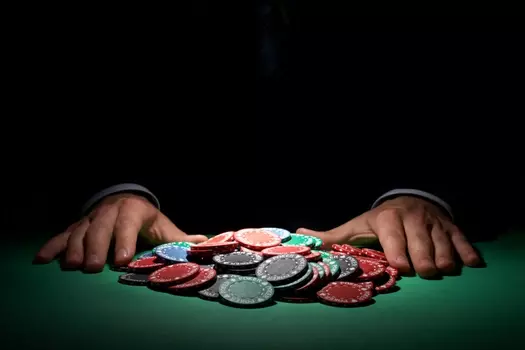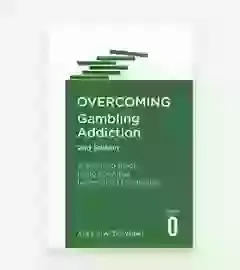When does gambling become an addiction?
In this edited excerpt from Overcoming Gambling Addiction, Alex Blaszczynski explains what types of gambling are most likely to lead to addiction, and what forms compulsive gambling can take.
What is gambling?
Gambling is an attractive form of entertainment that most people have enjoyed at one time or other in their adult life at least on one or more occasions. In contemporary society, it is common for people to play cards for money with family members or school friends; to play bingo, fruit machines (electronic gaming machines found in arcades often with no age restrictions) and other forms of gaming machines; to purchase lottery or raffle tickets or enter sweepstakes; and to bet off-track or visit casinos. Many of these activities can be either in land-based venues or through the Internet using computers, smartphones or tablets.
All these activities are regarded as fun and are socially approved forms of leisure. Gambling in the company of friends, the possibility of winning and the gambling environment with its noise and lights all combine to make the experience attractive and exciting. Dreams of vast wealth and changes in fortune also entice people to try their luck. However, most people are realistic: they hope to win, but really expect to lose. They only stake money that they can afford to lose. Although there may be a sense of disappointment at having lost, there is no concern about it by either the gambler or family members. It is apparent that the physical arousal generated by the prospect of winning is experienced as excitement and is the main factor attracting people to gambling.
Which forms of gambling cause problems?
It should be clearly emphasised that not all forms of gambling lead to problems. Different levels of risk are associated with different types of gambling. Very few people experience impaired control over buying raffle tickets. On the other hand, many people suffer from slots, roulette, fruit-machine, horse-race or sports betting. It has been shown that those forms of gambling that readily lead to loss of control have two elements in common: the opportunity to place single large bets (as in horse-racing, sports betting or casinos) up to several thousand pounds; and/or the capacity for rapid continuous play bets where the interval between play is very short (a matter of seconds) and results are known, and pay-outs given, almost immediately (as in slots and fruit machines).
What are the characteristics of problem gambling?
We know that the majority of people who gamble to excess develop psychological symptoms of depression and anxiety; many turn to alcohol or drugs as a means of temporarily escaping their problems. In some cases, the stress of financial pressures may even be so strong as to lead the person to commit a crime in order to cover his debts or provide money with which to continue gambling. The attempt is made to conceal debts and avoid others finding out the full extent of their difficulties and behaviours. The fear of discovery and its repercussions strains the already-fragile emotional state of the gambler, causing him or her to withdraw from social and family life; partnerships and marriage relationships deteriorate dramatically. The emotional turmoil interferes with concentration and the ability to perform properly at work, increasing the risk of being sacked.
But if you do have a gambling problem, do not despair; the cycle can be broken and recovery achieved. Remember: no matter how bleak the outlook appears, you can regain command of the situation and work toward personal development and self-improvement. With appropriate help, your partnership or marriage can be improved, performance at work stabilised and stresses reduced. Compulsive gambling is treatable and many do overcome its grip. In fact, evidence indicates that 65 to 85 per cent of problem gamblers do recover. With help, you can learn to identify the errors in your thinking. Once you understand the various steps down the path to problem gambling, you can reverse the process and change your behaviour for the better.




